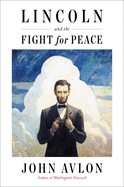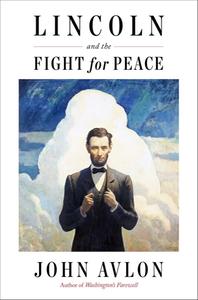
 One of the unquestioned tragedies of American history was the death of Abraham Lincoln on April 15, 1865, assassinated less than a week after the end of the Civil War. In Lincoln and the Fight for Peace, CNN political analyst and anchor John Avlon offers a highly readable survey of Lincoln's program for Reconstruction. He describes the disastrous turn that process took after Lincoln's death and reveals the influence the 16th president's approach to dealing with defeated enemies has had in the century and a half since his death.
One of the unquestioned tragedies of American history was the death of Abraham Lincoln on April 15, 1865, assassinated less than a week after the end of the Civil War. In Lincoln and the Fight for Peace, CNN political analyst and anchor John Avlon offers a highly readable survey of Lincoln's program for Reconstruction. He describes the disastrous turn that process took after Lincoln's death and reveals the influence the 16th president's approach to dealing with defeated enemies has had in the century and a half since his death.
Lincoln began his second term on March 4, 1865, with a 701-word inaugural address Avlon (Washington's Farewell) describes as a "meditation on war and peace, race and reconciliation, sin and redemption." The president had formulated a thoughtful plan for concluding the conflict whose end was nearing, while simultaneously confronting the daunting challenges of its aftermath. His insistence on the Confederacy's unconditional surrender was coupled with a generous program he hoped would allow the speedy recovery and reintegration into the Union of a post-slavery South. But with Lincoln's sudden death, his successor, Andrew Johnson, a man of flawed character who was "the opposite of Lincoln in all things except humble beginnings," pursued an incoherent, and ultimately disastrous, set of policies. These represented "an abandonment of equal rights and near-capitulation to the Confederates," undermining any hope of racial equality in the region for more than a century.
Avlon chooses not to end his book on this disheartening note. In its final section, he briefly explores how the country's leaders have responded to the peacetime challenges that followed the First and Second World Wars, as viewed through the lens of Lincoln's approach to governing. He argues that those, like Woodrow Wilson and the Allied leaders after World War I, who did not follow Lincoln's path (i.e., "unconditional surrender followed by a magnanimous peace") and instead opted for "premature peace negotiations with a policy of retribution" doomed their efforts to failure. He contrasts that failure with the successful rebuilding of Germany and Japan following World War II, an effort more consistent with the Lincoln model.
All this is presented in a crisp, journalistic style. Avlon draws liberally on contemporaneous accounts to bring events to life, for example, in describing Lincoln's visit to Richmond, the Confederate capital, after it fell to the Union forces. Harry Truman, whose family was on the losing side of the Civil War, once said, "The only thing new in the world is the history you do not know." Leaders and curious readers unfamiliar with the leadership qualities that made Abraham Lincoln great will find some of them revealed in this useful handbook. --Harvey Freedenberg, freelance reviewer
Shelf Talker: John Avlon analyzes Abraham Lincoln's plan for Reconstruction and explains how the country's leaders have ignored, or been guided by, his example in later conflicts.

